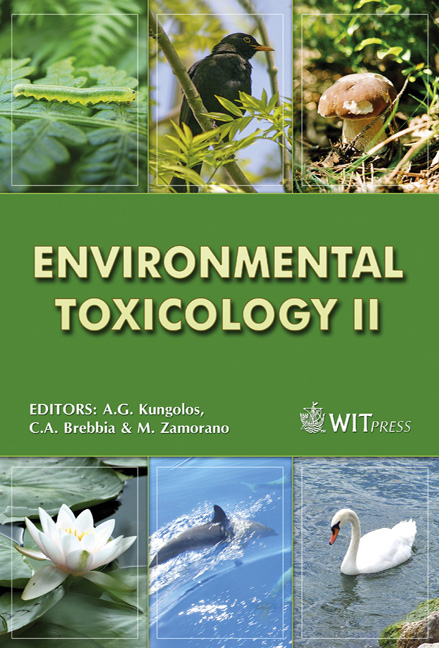Androgenic Activity Of Effluent From Forty-five Municipal Waste Water Treatment Plants In Victoria, Australia
Price
Free (open access)
Transaction
Volume
110
Pages
12
Page Range
293 - 304
Published
2008
Size
326 kb
Paper DOI
10.2495/ETOX080311
Copyright
WIT Press
Author(s)
G. Allinson, M. Allinson, F. Shiraishi, S. A. Salzman, J. H. Myers, K. M. Hermon & T. Theodoropoulos
Abstract
It is well known that waste water treatment plant (WWTP) effluents are estrogenic. There has been much less consideration of the androgenic activity of WWTP effluents. To partly address the shortage of information on androgens in Australian WWTP effluents, in August 2006, and again in 2007, we collected discharges from up to 45 Victorian WWTPs (~25% of all WWTPs in Victoria), grouped by treatment process, i.e. activated sludge, extended aeration, and lagoon based treatment, and measured the total estrogenic, androgenic, retinoic acid, and aromatic hydrocarbon hydrogenase activity of the effluents using a hybrid yeast bioassay. This paper will concentrate on the androgenic activity and male hormone concentrations. None of the WWTP effluents produced a response in the yeast assay. However, that does not mean there are no androgens in the effluents. The ELISA testing suggested that there are low levels of testosterone and androstenedione in the WWTP discharges (typically less than 5 and 10 ng/L, respectively). The lack of response in the androgen assay may reflect lack of test sensitivity, rather than lack of androgenic activity, per se. The low concentrations of testosterone and androstenedione found in our Victorian WWTP effluents are broadly consistent with the few observations made elsewhere in Australia. Also, it is not just the big cities that produces hormonally active WWTP effluent, but also smaller communities. Indeed, some small community effluent contains more testosterone/androstenedione than that of large cities. Keywords: androgenic activity, testosterone, androstenedione, waste water treatment plant effluent.
Keywords
androgenic activity, testosterone, androstenedione, waste water treatment plant effluent.





